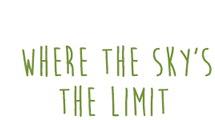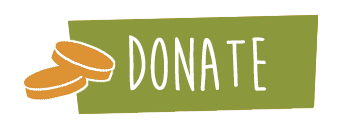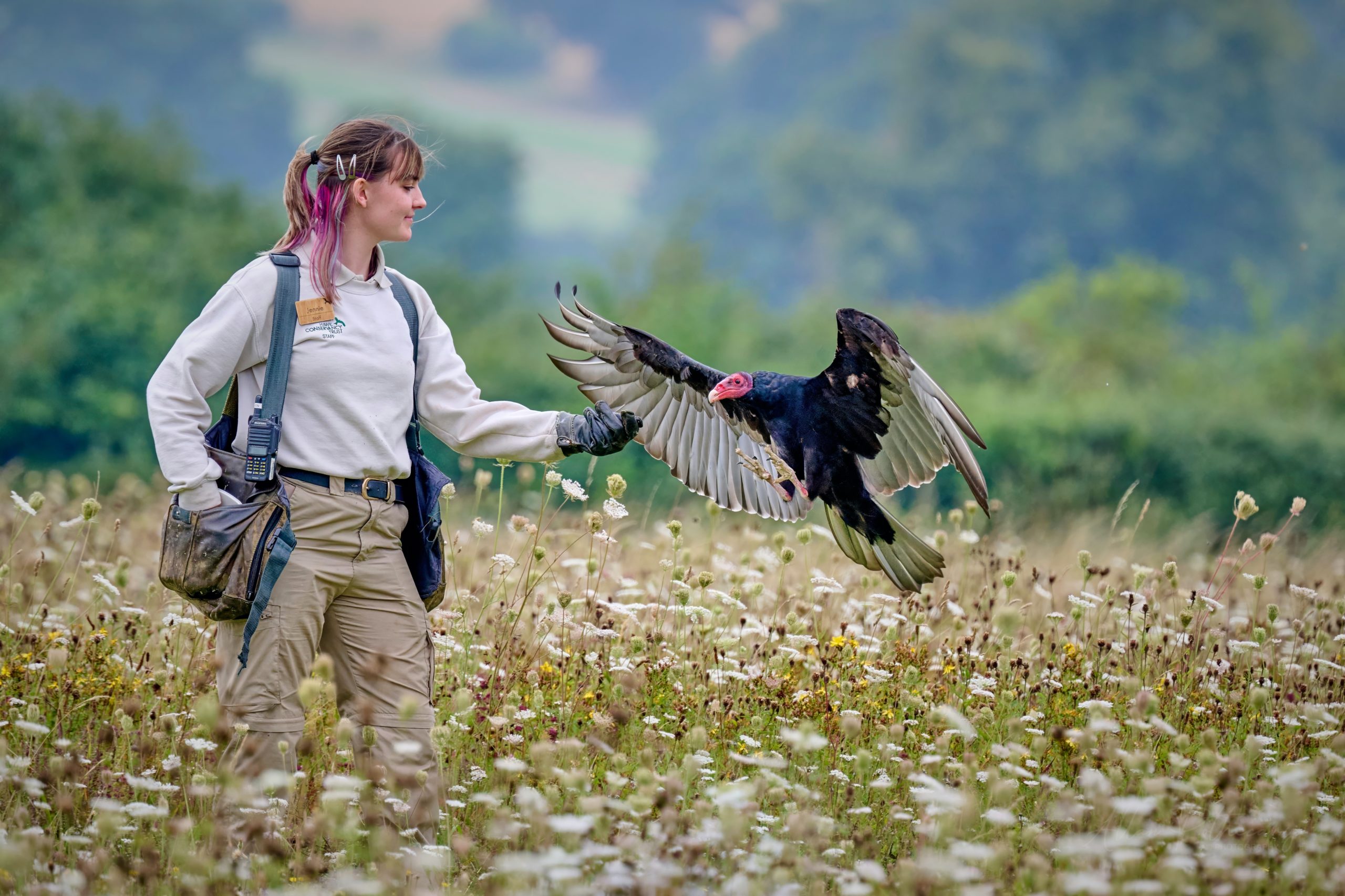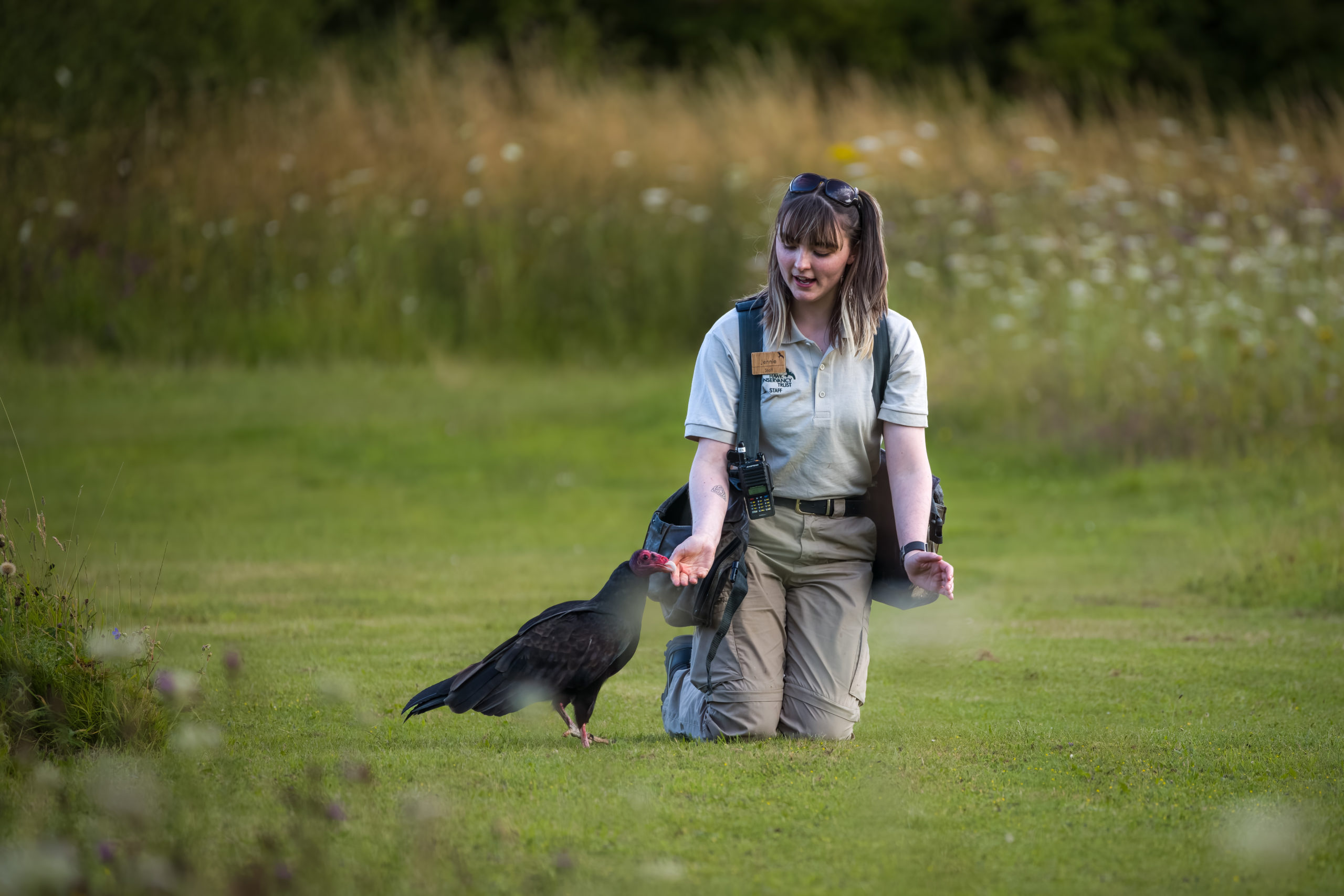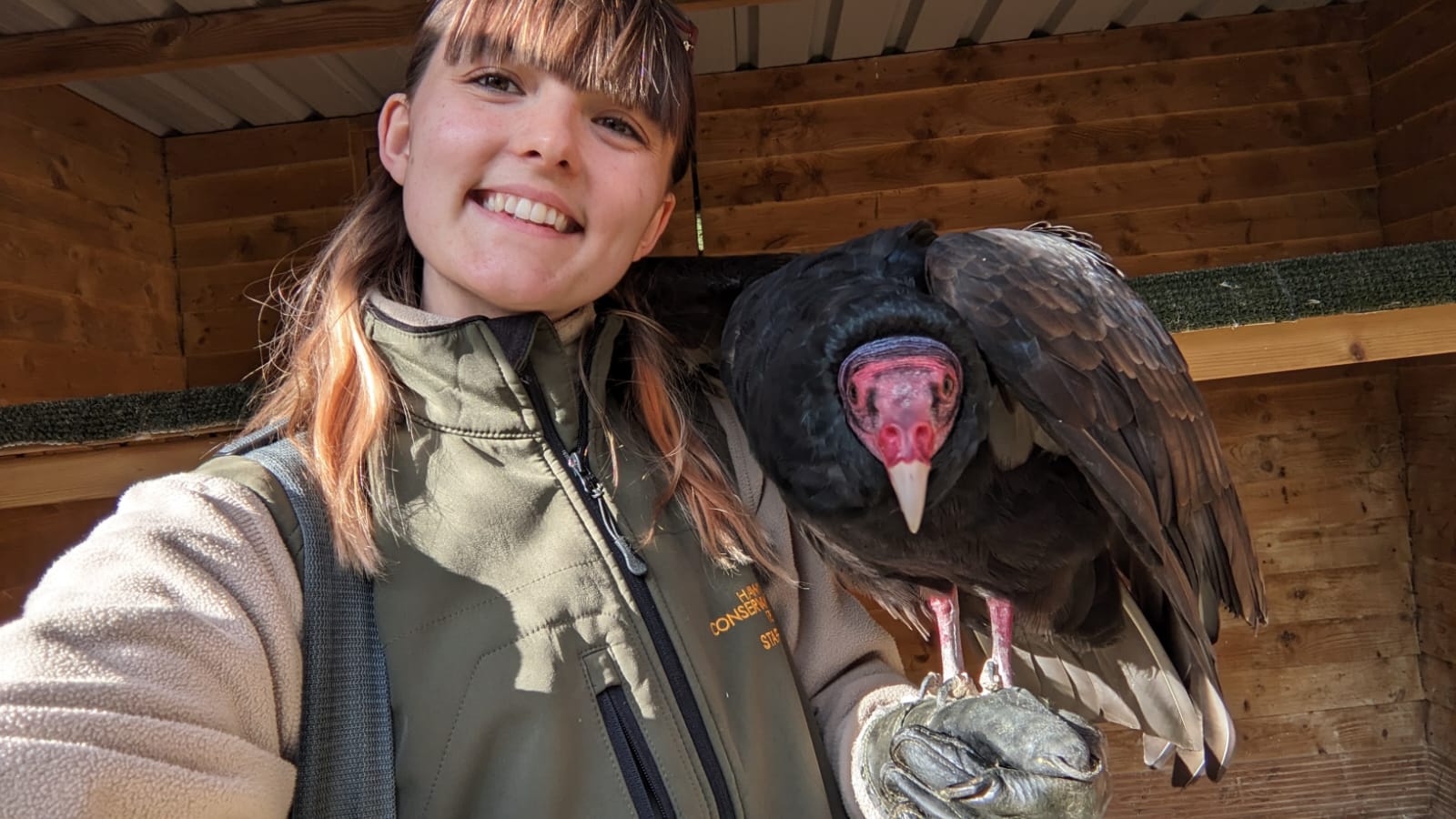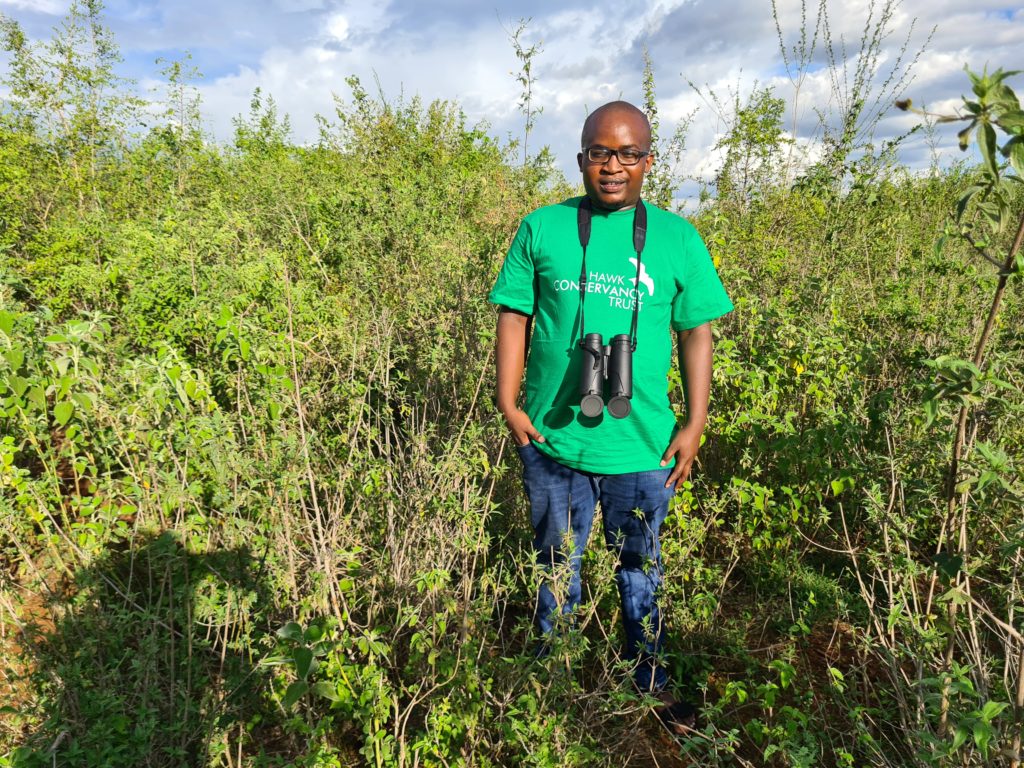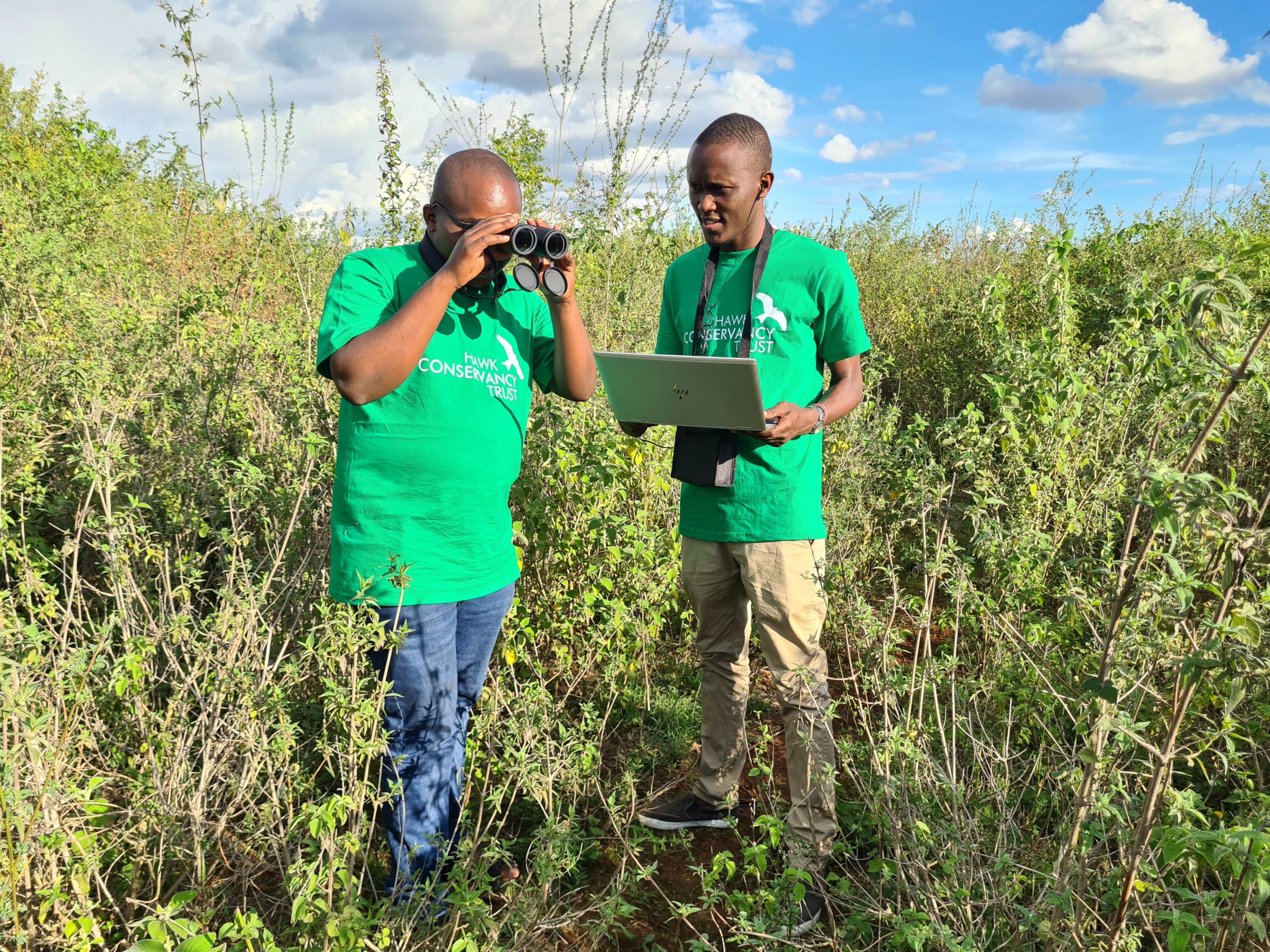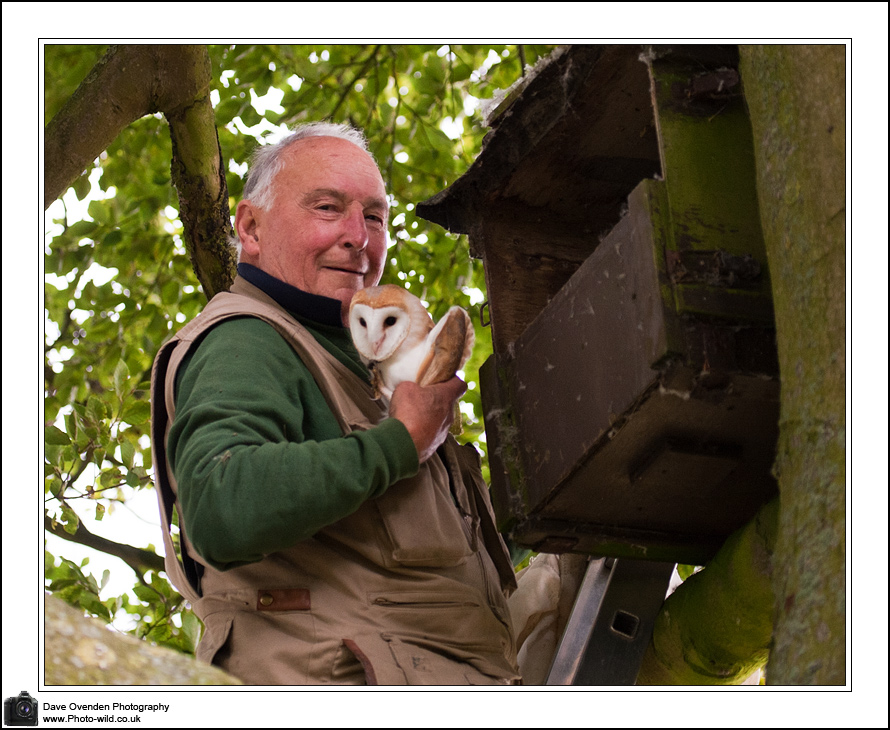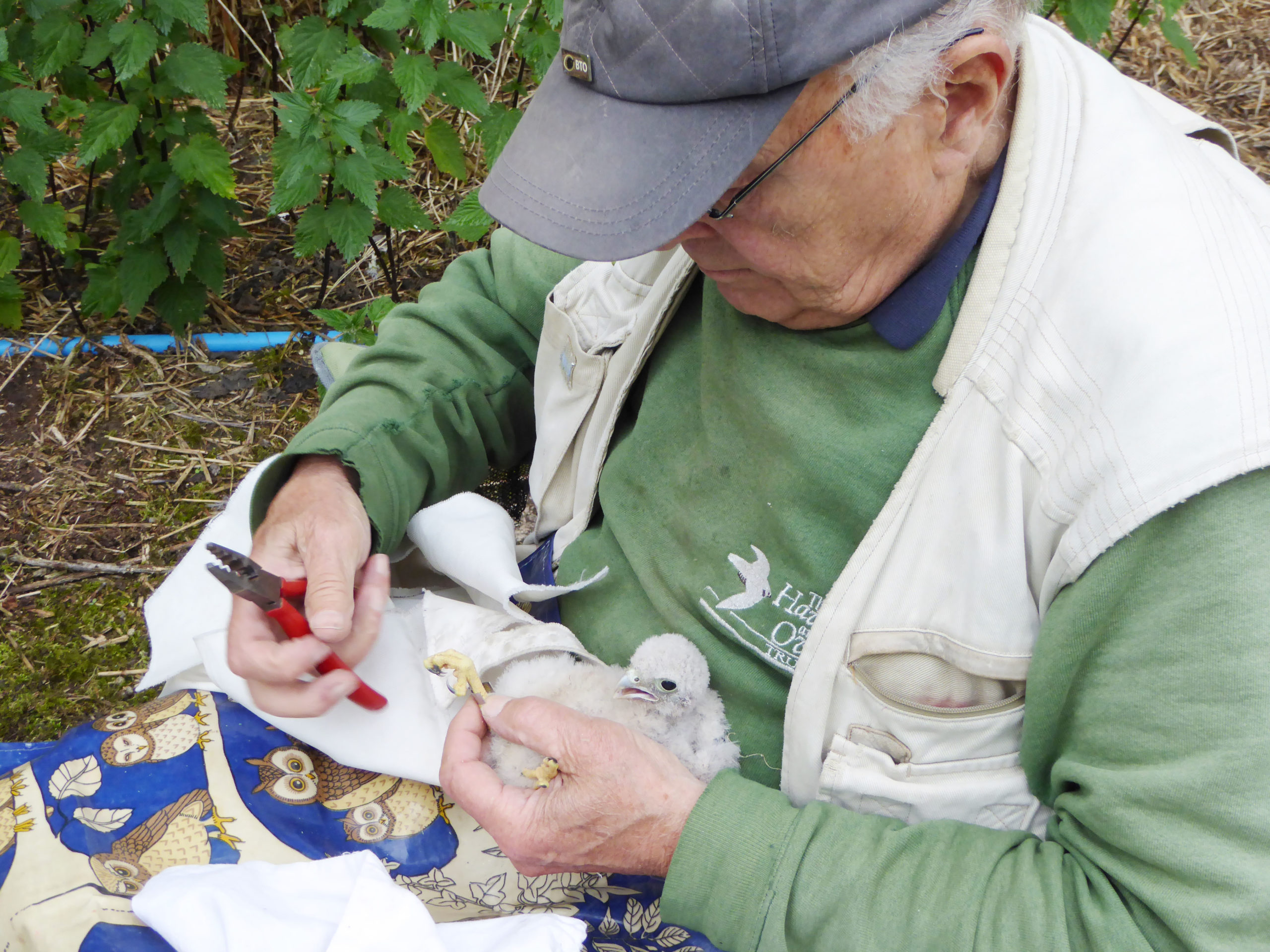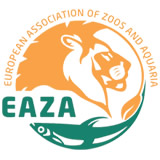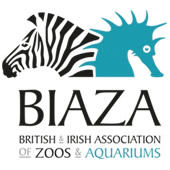Please give a warm welcome to Tanith Jones, who joins our Conservation and Research Team as our new Research Assistant! In this exciting and important role, Tanith is supporting our UK Conservation Biologist Dr Matt Stevens with our vital conservation work. She’s already got stuck in carrying out transect surveys, helping monitor nest boxes, and even building a few of them herself!
“I am very excited to have recently joined the Hawk Conservancy Trust as a Research Assistant within the Conservation and Research Department. Growing up in Hampshire, not too far from the Trust, I have memories of my parents teaching me how to identify Kestrels and Buzzards from the car on the way to school. It is very surreal to now be working here, 15 years or so later, as part of a very knowledgeable and engaging team that share a wonderful enthusiasm for birds of prey.
I recently graduated from Bangor University with a BSc (Hons) Zoology with Animal Behaviour degree. My initial drive to study stemmed from wanting to pursue veterinary medicine, but during my studies, I quickly found my true interests lie within the world of conservation and research, and of course, birds!
In my third year of study, I completed a 12-month placement in the Scottish Lowlands as part of an EU-funded project, PARTRIDGE. This project focused on farmland biodiversity through specifically designed agri-environmental schemes, their management and the monitoring of our native grey partridge. This year really cemented my love for conservation and how these projects can help improve our understanding on how to protect species through evidence-based conservation. It was eye-opening working alongside landowners, farmers, a variety of scientists as well as politicians; Each person playing an important role, collaborating toward improving farmland biodiversity.
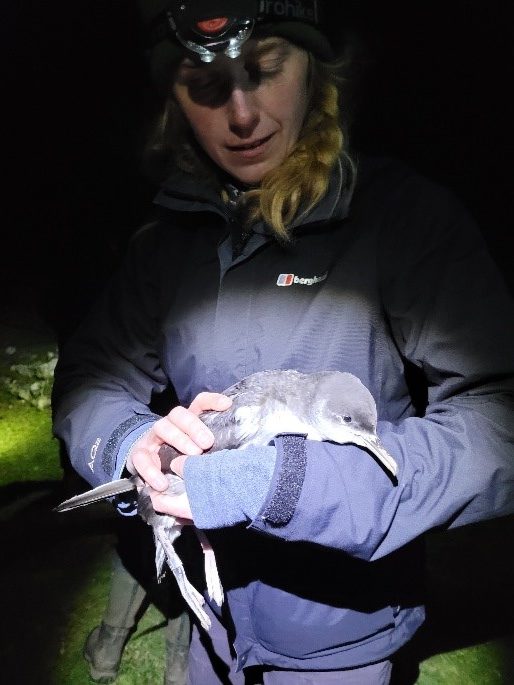
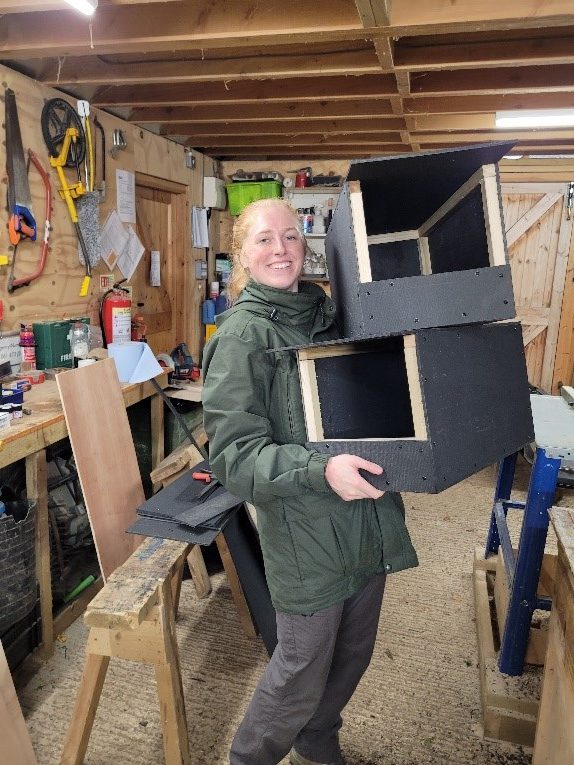
My final year dissertation project was based on Manx Shearwater (Puffinus puffinus) morphometric and accelerometry data, investigating energy expenditure of foraging flights around Bardsey Island (Ynys Enlli). I was fortunate enough to be able to visit the bird observatory here, getting involved in daily bird counts and ringing. It was an unforgettable experience listening to the eerie sounds of thousands of Manx Shearwater at night, and after months of processing the flight data on a computer, it was incredible to have the opportunity to work in-person with these hardy birds and put the project into a whole new perspective.
Both experiences highlighted my wish to work in ornithological conservation and research, and so to be a part of the British Raptor Programme is very exciting. This programme involves a variety of UK-based conservation projects, including the Raptor Nest Box project, small mammal trapping and raptor transect surveys across the Southeast of the UK. Supporting Dr Matt Stevens, our UK Conservation Biologist, I am looking forward to using my previous experiences as a foundation to contribute to these projects, learn more about our beautiful birds of prey and how best to protect their future within our countryside. The last few months have been action-packed, and I have very much enjoyed getting stuck in from the get-go!”

